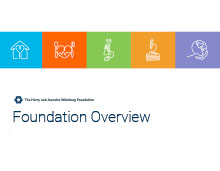When the U.S. Department of Housing and Urban Development made a surprise announcement back in fall 2022 about funding available to support people without housing in rural areas, Hawaiʻi grantee Bridging the Gap did not have the capacity to apply.
A modest grant from the Foundation allowed Bridging the Gap (BTG) — which is the federally required entity responsible for coordinating housing and services for people experiencing homelessness within the counties of Maui, Kauaʻi, and Hawaiʻi — to contract Ka Mana O Na Helu, a community partner and BTG’s collaborative applicant, to apply for the opportunity. As a result, Bridging the Gap received $3 million in federal funding for local programming, a significant financial boost to its efforts. Those funds will go toward expanding health services for individuals who are unsheltered and increasing the supply of permanent supportive housing on Hawaiʻi Island, as well as providing behavioral health care for people who are unhoused on Maui.
The Foundation’s support, which is part of its efforts to address homelessness in Hawaiʻi and beyond, is an example of how grants can help bring in significant amounts of federal funding that benefit a range of local nonprofits and communities. Increasing the available resources to support housing is especially important given the rising cost of living and persistence of homelessness throughout Hawaiʻi.
A January 2023 proclamation from the governor estimated that nearly 6,000 people in Hawaiʻi experience homelessness on any given night, including 376 families and 865 children. Bridging the Gap estimates more than one-third of those individuals live in the primarily rural counties of Maui, Kauaʻi, and Hawaiʻi, which are home to significant Native Hawaiian and Pacific Islander populations and tend to have high rates of poverty — a result of colonialism and decades of underinvestment. Tackling the problem is especially difficult in rural areas, where philanthropic funding is scarce.
A Department of Housing and Urban Development program funds Bridging the Gap and other organizations across the nation that coordinate what is known as a continuum of care, which promotes a communitywide response to homelessness. To that end, the Hawaiʻi nonprofit tracks data across nonprofit service providers and communities, conducts point-in-time counts, and develops collaborative strategies to serve individuals without housing.
While some organizations serving as a continuum of care are well staffed and able to crunch data, convene service providers to strategize, and track and apply for federal grants, others have no staff and rely on volunteers from their nonprofit partners to operate. By building the capacity of organizations like Bridging the Gap, the Foundation aims to enable them to secure additional resources to support coordinated efforts across communities and service providers, further advancing the fight to end homelessness.
Given Bridging the Gap’s success in bringing in more dollars, the Foundation plans to continue investing in similar entities, and is exploring grants for the continua of care on Oʻahu and in Baltimore.




